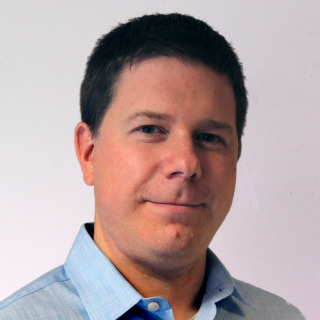
I’m an astrophysicist at the Center for Astrophysics | Harvard & Smithsonian. I currently serve as the Technical Lead of the IAU Minor Planet Center.
Because there are a lot of P. Williamses out there, I try to go by Peter K. G. Williams in professional contexts.
Professional Interests
I’m an astronomer by training, but for even longer than I’ve been a scientist, I’ve been an open-source software developer. Broadly speaking, I’m fascinated by the potential of technology to transform and improve the practice of science, not to mention all other aspects of life.
Don’t get me wrong, though: I’m no “techno-optimist.” There’s a certain brand of unquestioning Silicon Valley positivity that I find genuinely offensive — a naïveté so blatant and, frankly, ignorant that it feels like it must be willful. That’s why Kranzberg’s First Law is the tagline on my homepage. But it’s also true that since I started taking my first steps into the world of research, I’ve been struck by how much better we collectively could be at science, if just the right tools would be brought to bear.
Getting down to the particulars:
- Most of my astrophysical work has been on the topic of “extrasolar magnetospheres,” showing that very small stars and even “brown dwarfs” (the balls of gas that are between stars and planets in size) have magnetic fields that are quite similar to the ones we find planets around Earth and Jupiter — they’re just hundreds of times stronger! These magnetic fields are essential ingredients in understanding habitability, drive a rich phenomenology of space plasma physics, and tell us about the internal structure of these bodies.
- It turns out that the best way to probe these magnetospheres is with the tools of observational radio astronomy, which is one of my specialties. My astronomical work has often combined data from across the electromagnetic spectrum, however, including observations in the infrared, optical, ultraviolet, and X-ray taken with observatories like Hubble, Chandra, and ALMA. I’m interested in the statistical and analytical techniques needed to perform joint analyses of such datasets.
- A major reason that I got into the above areas is that I’m excited by data-intensive, data-driven projects. I built the data management system for the HERA project and overhauled the data infrastructure for DASCH. Beyond task-specific data analysis pipelines and tools, I’m interested in developing astronomy’s data infrastructure and broader efforts to make research data more open and FAIR.
- The foundation for this work is my deep experience with the kind of work that’s come to be called “research software engineering.” I’ve been contributing to open-source software projects for multiple decades and had a stint as a core member of the conda-forge scientific software packaging project. I’m extremely eager to build bridges between the open-source and research software communities, which are often much more separate than you might think.
- Some of the largest opportunities that I see are in the systems by which scientific data and knowledge are shared, both among professionals and in society at large. In the realm of formal scholarly publishing, I served as Innovation Scientist in the AAS Publishing group, advising on technology strategy and editing the Bulletin of the AAS. I help moderate submissions to arxiv.org.
- My interest in scholarly communication extends beyond the traditional channels. At AAS I was also the Director of the WorldWide Telescope project, a first-class example of how the graphics technologies developed for the Web can make it easy for researchers to develop beautiful, bespoke visualizations. I write my talks in HTML which allows me to include fancy interactive animations. I’ve spent more time in the guts of TeX than any person really ought to, including launching the Tectonic Project, which aims to keep the venerable TeX typesetting system relevant in the 21st century.
- At a more abstract level, I’d like to live in a world where those of us who identify as researchers or technologists can also comfortably identify as scholars too. I try to encourage an approach to engineering that takes itself seriously as a component of the scholarly enterprise.
I’m also interested things that aren’t science! But this isn’t the place for talking about those.
Short Biography
I did my undergraduate work at Harvard. I obtained my PhD with Geoff Bower at the UC Berkeley Department of Astronomy, where I conducted some of the first scientific studies using the Allen Telescope Array.
In 2012 I came to the CfA to work as a postdoc in the group of Prof. Edo Berger, mainly doing multiwavelength time-domain studies of ultracool dwarfs, gravitational-wave event counterparts, and other variable phenomena. From 2018 to 2022 I held a joint appointment as the Innovation Scientist of the CfA and the American Astronomy Society (AAS), and as Director of the WorldWide Telescope project. In 2023–2024 I was the scientific and technical lead for DASCH and prepared DASCH Data Release 7. Since 2025 I have been the Technical Lead for the IAU Minor Planet Center. I was named a 2025 Better Scientific Software Fellow.
For lots more, see my CV.
Contact
My CfA office is C-311C at 60 Garden Street. It used to belong to Annie Jump Cannon. My work email address is pwilliams@cfa.harvard.edu (though it just forwards to my personal address, peter@newton.cx). I can also be reached on Mastodon as @pkgw@mastodon.world. My postal address and phone number are listed on my CV.